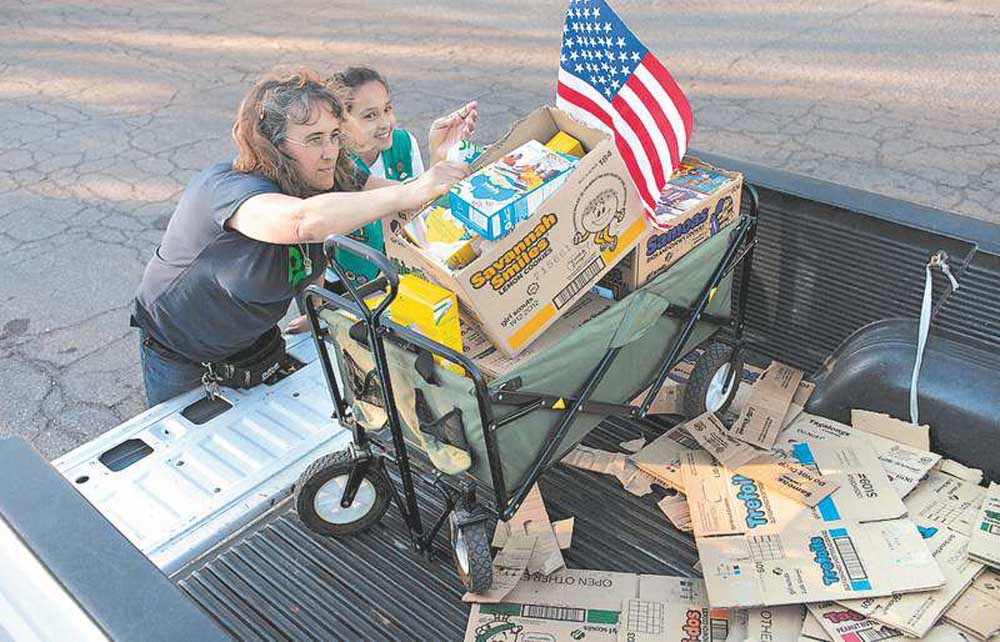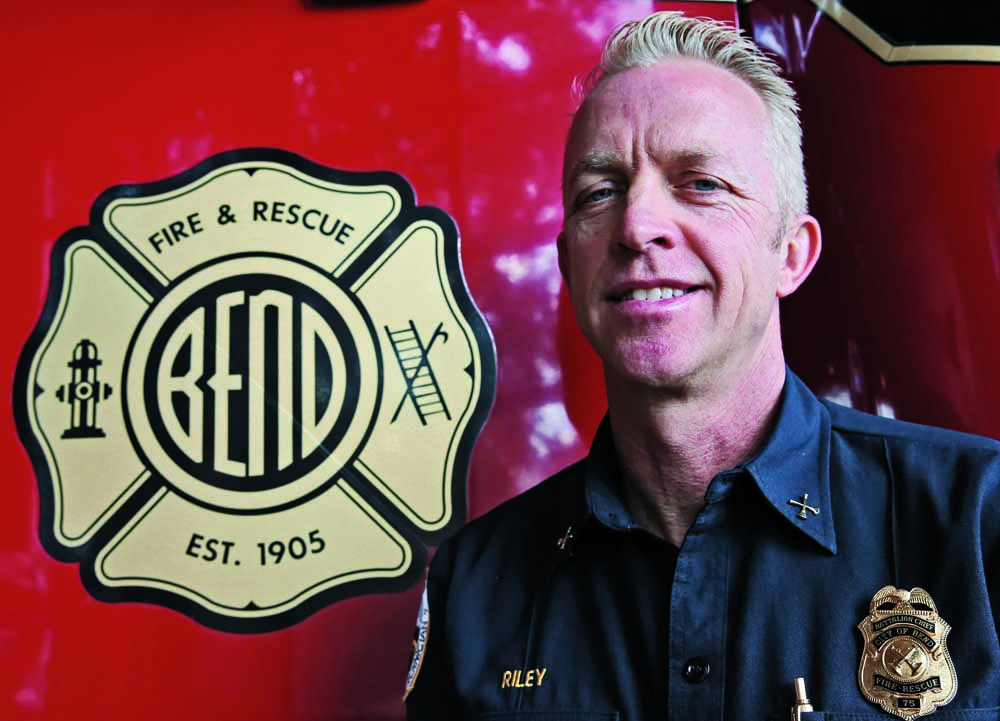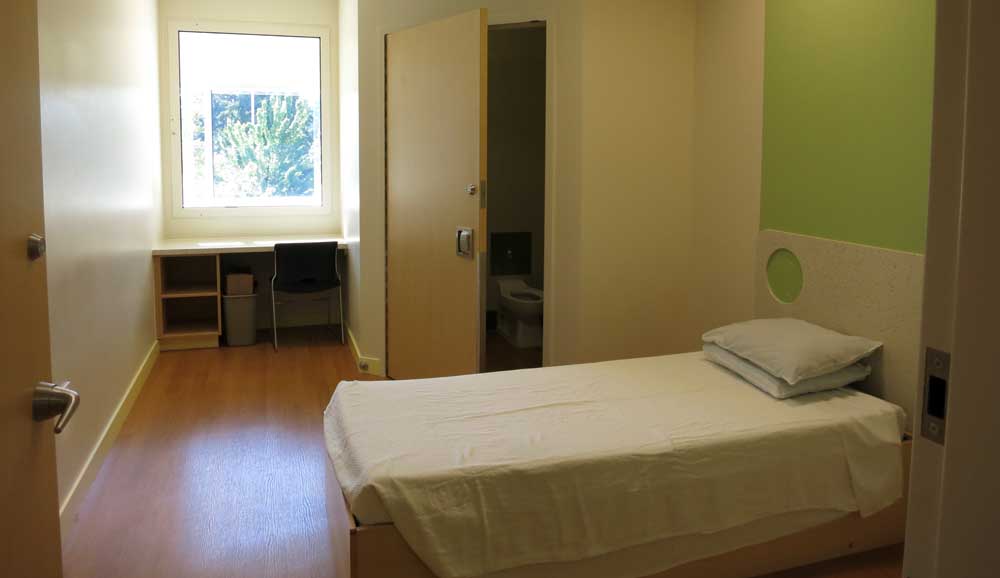A box of Thin Mints, a source of pride
Published 4:00 am Sunday, February 17, 2013

- Mary Ruiz, 10, a Girl Scout, and her mother, Pilar Ruiz, pack up after an evening of selling Girl Scout cookies door to door in Tucson, Ariz. Selling Thin Mints and Samoas has brought Mary self-esteem, money skills, a sense of accomplishment and some great electronic gear.
TUCSON, Ariz. — When you buy a box of Girl Scout cookies and devour 10 in a single sitting, as untold numbers of people will in the next month, you are propping up a pretty sizable enterprise.
During last year’s sales season, scouts sold $785 million worth of Thin Mints, Samoas and all the rest, about 215 million boxes in all. Our collective annual binge may well represent the greatest continuing marketing bonanza an American nonprofit group has ever created.
But for the 1.5 million or so girls who do the selling, it also represents an opportunity. They handle more money than they might have ever seen in one place, build sales skills long before they have their first part-time jobs and earn prizes — commissions, in effect — that their parents might not be able to afford or wouldn’t buy for them.
Which is how 10-year-old Mary Ruiz managed to stock her small bedroom here with an iPad, laptop and Nintendo DS. Last year, her customers bought 5,007 boxes of cookies. While the national organization does not collect individual rankings, it’s doubtful that more than a tiny handful of girls outsold her.
To her mother, Pilar, who is also her troop leader, this is a source of pride. To other parents, sales season is a source of dread, when work schedules conspire to keep them from chaperoning their children for after-school sales calls while boxes and order forms consume the weekends.
Still, it’s hard to imagine a better way for children to learn to pitch, and keep pitching, than this. And so I trailed Mary this week as she politely knocked on the door of a pink house on East 19th Street with a “No Soliciting” sign (a friend had tipped her off that it was all right to try), provided reinforcements to University of Arizona freshmen outside Safeway who had already consumed multiple boxes in the preceding days and tried to close another deal in Spanish.
She pulls an oversize wagon stuffed with meticulously organized boxes and nestles an American flag in between. A sign explains what’s known in the Girl Scout world as her “gift of caring.” For her, it’s an effort to persuade customers to donate change from their purchase toward more cookies or to buy extra boxes outright for soldiers abroad and firefighters and police officers nearby. This can work more than half the time, particularly when customers are already expecting just a small amount of change from a $20 bill. Last year, she delivered 504 boxes to local police officers and arranged donations of 192 boxes to soldiers.
This has had particular resonance in the area in the wake of the shooting of Rep. Gabrielle Giffords and several others two years ago. At the South Tucson Police Department, where Mary volunteers regularly and brings officers gifts on their birthdays, she has her own mailbox.
All of this hand-to-hand selling takes time. She took just two days off, including weekends, during the six-week selling season last year and put in about 28 hours each week, on average.
In exchange for her efforts, she earned all manner of goodies from her local scouting council. This year, Mary stands to earn a trip to a local water park, a visit to Disneyland, a “VIP Club” experience (no parents allowed), a beach bike and another iPad or laptop.
There comes a point at which all of this may begin to seem less like an educational activity and fundraising mechanism and more like trying to land in the leader’s circle for commissioned sales representatives at Pfizer or someplace similar. But Ruiz believes it does not cross the line.
“She doesn’t have a lot of the other things that other kids have unless she’s earned them,” she said. “And I think she gets much more satisfaction out of that and takes great pride in owning them when she has worked for them.”
Cookie sales don’t just benefit the individual girls. Some of the money goes to the local Girl Scout council, which often uses it to provide scholarships for lower-income scouts to attend summer camp. Each troop also retains some money, and Mary’s troop, which sold more than 12,000 boxes last year, has retained $13,000 over the years, which it has earmarked for group travel.
While the perks are nice, Ruiz didn’t sign her daughter up for scouting for the travel. As a work-at-home telephone reservations agent for American Airlines, she has free passes for that.
Instead, it’s the life skills. “It’s not important that she necessarily sells cookies,” she said. “It’s simply that she knows how to sell herself. And by learning to sell cookies as a young girl, she’s learned the skill to sell you just about anything.”
Mary was once quite shy and is still prone to occasional bouts of nervousness, ringing doorbells and then tapping out a few steps that she’s picked up in her baile folklorico dance classes. “When I first started selling cookies, I was kind of scared to talk to people I didn’t know,” she said. “You just get warmed up to it.”
This sort of thing warms the heart of Daniel Pink, whose new book, “To Sell is Human” was an instant best-seller when it came out last month. “Quieter kids can get a little bit more comfortable with asking for stuff,” he said. “And the more voluble and extroverted can learn to listen.”
Ruiz said she did push her daughter to do her best, the same way she did in any activity and the same way any other parent would for a bright child. “I want her to have, which I believe she’s acquired, good work ethics, good values and to really understand that if you want something in this life, you have to work for it,” she said. “I don’t want her to be one of those kids that spends 20 hours a week playing video games and saying, ‘Give me, give me, give me.’”







